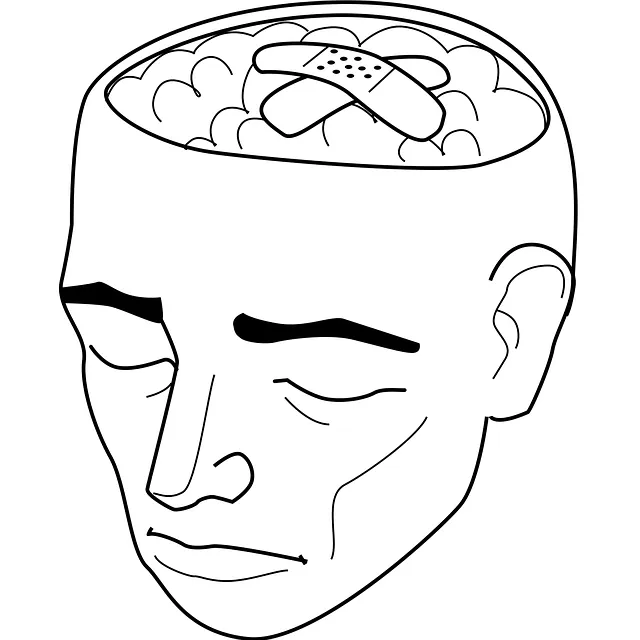Mental health diagnosis complexity arises from the multifaceted nature of emotional healing and individual experiences, with conditions like depression, anxiety, and bipolar disorder often presenting similar symptoms. Kaiser Permanente, a leading healthcare provider, has made significant progress in enhancing diagnostic accuracy through a comprehensive strategy that includes evidence-based practices, advanced assessment tools, expanded access to mental health services (like their mental health phone number Littleton), training programs for healthcare professionals, and early intervention. Their focus on understanding and compassion strengthens patient-provider relationships, leading to more precise evaluations and improved care outcomes, while also facilitating timely care through dedicated resources like the Kaiser Permanente mental health phone number Littleton.
Mental illness diagnosis accuracy is a critical aspect of patient care, and improvements are continually sought. This article explores the intricate challenges in diagnosing mental health conditions and highlights innovative strategies. We delve into the successful efforts of Kaiser Permanente’s approach to enhancing diagnosis accuracy in their mental health services.
Additionally, we discuss the profound impact of early intervention and support services, emphasizing their role in improving patient outcomes. For more information on mental health resources, contact the Kaiser Permanente mental health phone number in Littleton.
- Understanding Diagnostic Challenges in Mental Health
- Kaiser Permanente's Approach to Enhancing Diagnosis Accuracy
- The Impact of Early Intervention and Support Services
Understanding Diagnostic Challenges in Mental Health

Mental health diagnosis can be complex due to the multifaceted nature of emotional healing processes and individual experiences. According to resources available at the Kaiser Permanente mental health phone number Littleton, conditions like depression, anxiety, and bipolar disorder often share similar symptoms, leading to potential misdiagnosis or delayed treatment. This challenge is further exacerbated by the subjective experience of each patient’s mood management, making it difficult for healthcare providers to pinpoint exact causes and effects.
Improving diagnostic accuracy involves a multifaceted approach. It requires professionals to not only consider the clinical presentations but also delve into patients’ personal stories and self-care routine development for better mental health. By integrating these aspects, healthcare systems like Kaiser Permanente can enhance their ability to accurately diagnose and treat mental illness, ultimately fostering more effective emotional healing processes.
Kaiser Permanente's Approach to Enhancing Diagnosis Accuracy

Kaiser Permanente, a leading healthcare provider, has made significant strides in improving mental illness diagnosis accuracy through a multi-faceted approach. They emphasize evidence-based practices and continuously refine their assessment tools to ensure better identification of mental health conditions. One notable initiative is their focus on expanding access to mental health services, including dedicated phone lines like the Kaiser Permanente mental health phone number Littleton, which allows individuals to reach out for support without barriers.
The organization also invests in training programs that equip healthcare professionals with advanced skills. This includes designing Mental Health Education Programs focused on empathy building strategies and promoting positive thinking as fundamental tools for accurate diagnosis. By fostering an environment of understanding and compassion, Kaiser Permanente aims to enhance patient-provider relationships, leading to more precise evaluations and ultimately better care outcomes.
The Impact of Early Intervention and Support Services

Early intervention is a cornerstone in improving mental illness diagnosis accuracy and overall patient outcomes. When individuals receive timely support for their mental health struggles, it can significantly alter the trajectory of their condition. Organizations like Kaiser Permanente, with dedicated mental health phone numbers, play a vital role in facilitating early access to care. By providing easily accessible resources, such as the Kaiser Permanente mental health phone number Littleton, communities ensure that those experiencing symptoms or distress can connect with healthcare professionals promptly.
This proactive approach not only benefits individuals but also reduces the societal burden of untreated mental illness. Emotional intelligence and cultural competency among healthcare providers are further essential components of this process. Training programs focused on Healthcare Provider Cultural Competency Training equip professionals to recognize and understand diverse emotional presentations, ensuring accurate diagnoses for all patients. Trauma Support Services within these frameworks empower individuals to heal from historical traumas, fostering a more comprehensive and effective treatment approach.
Mental illness diagnosis accuracy is a critical aspect of patient care, and efforts like Kaiser Permanente’s innovative approach in Littleton showcase promising progress. By combining advanced technology with specialized training, they aim to ensure that individuals receive the correct support at the earliest signs of distress. Early intervention and accessible services, such as the Kaiser Permanente mental health phone number Littleton offers, are game-changers in improving outcomes and fostering a healthier community. This comprehensive strategy addresses the challenges of accurate diagnosis, ultimately leading to better treatment and enhanced well-being for those facing mental health issues.






